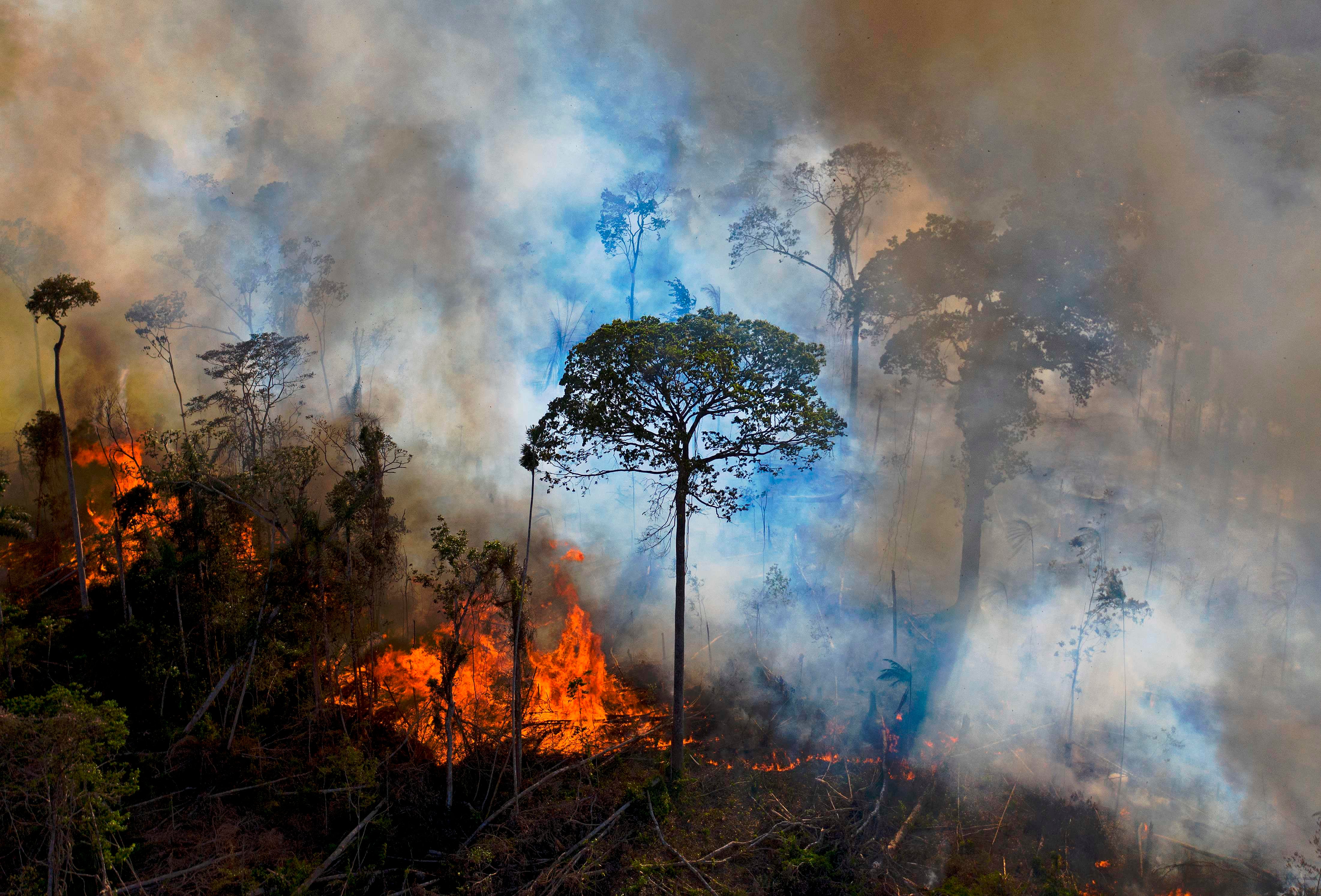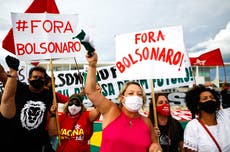Plots of Amazon rainforest being illegally sold through Facebook
Land advertised includes indigenous reserves, investigation finds

Your support helps us to tell the story
From reproductive rights to climate change to Big Tech, The Independent is on the ground when the story is developing. Whether it's investigating the financials of Elon Musk's pro-Trump PAC or producing our latest documentary, 'The A Word', which shines a light on the American women fighting for reproductive rights, we know how important it is to parse out the facts from the messaging.
At such a critical moment in US history, we need reporters on the ground. Your donation allows us to keep sending journalists to speak to both sides of the story.
The Independent is trusted by Americans across the entire political spectrum. And unlike many other quality news outlets, we choose not to lock Americans out of our reporting and analysis with paywalls. We believe quality journalism should be available to everyone, paid for by those who can afford it.
Your support makes all the difference.Plots of Brazil’s Amazon rainforest are being illegally sold on Facebook Marketplace, with some listings reportedly advertising areas the size of a thousand football pitches.
The land being traded includes protected areas such as national forests and indigenous reserves, a BBC investigation has revealed.
Facebook told the broadcaster that it was “ready to work with local authorities”, but environmental campaigners and indigenous groups have said Brazil’s government will not intervene.
“The land invaders feel very empowered to the point that they are not ashamed of going on Facebook to make illegal land deals,” Ivaneide Bandeira, head of environmental NGO Kanindé, told the BBC.
The group works with the Uru Eu Wau Wau, an indigenous group in the state of Rondônia, for the protection of the environment. Rondônia is the most deforested state in the country’s rainforest area, and many of the ads found for illegal plots of land were in the region.
Searching for the Portuguese word for ‘forest’ and other relevant terms in Brazil’s rainforest regions brings up ads for illegally invaded areas of forest.
Deforestation in the Brazil’s Amazon has surged to highest levels in more than a decade, with scientists warning that it has suffered losses at a rising rate since Jair Bolsonaro became president in January 2019.
The far-right leader has encouraged development and agriculture in the world’s largest rainforest, with the cattle ranching, logging and mining industries being key drivers of deforestation.
Mr Bolsonaro has also cut funding to federal agencies that enforce environmental law by fining and arresting farmers and loggers breaching regulations.
Ibama, the federal agency that regulates deforestation, has seen its inspections budget slashed. Suely Araújo, a former president of the agency, has previously said that with “Bolsonaro’s speeches since 2018, what [illegal invaders] understand on the ground is that environmental crime is now free of charge”.
Despite a record number of fires being reported in Brazil’s rainforest region last summer, the Brazilian president claimed that there are no fires in the Amazon, calling evidence produced by his own government showing thousands of blazes a “lie”.
A seller who had cleared illegally burnt down trees in order to sell for agricultural purposes told the BBC that “there was no risk of an inspection by state agents here”.
Land invaders often try to lobby politicians to scrap rainforest areas’ protected status once they have been illegally razed. They can then buy it from the state and gain legal ownership.
The investigation also learned that sellers were trying to sell off land inside the Uru Eu Wau Wau indigenous reserve, where at least 200 people from the indigenous group live. At least five other groups that have had no contact with the outside world also live in the area.
The Amazon is home to around one million indigenous people.
Brazil’s environment minister, Ricardo Salles, told the broadcaster that the Bolsonaro administration “has always made it clear that his is a zero-tolerance government for any crime, including environmental ones”, adding that the pandemic had hindered regulation efforts.
The Amazon rainforest makes up nearly a third of all the tropical rainforests left on Earth.


Join our commenting forum
Join thought-provoking conversations, follow other Independent readers and see their replies
Comments